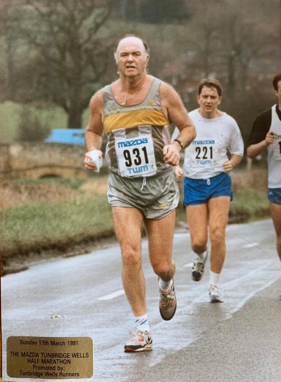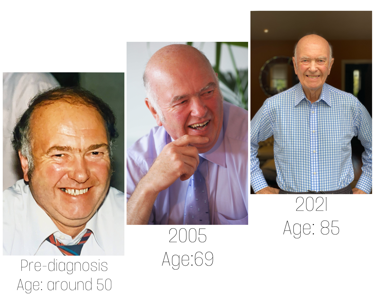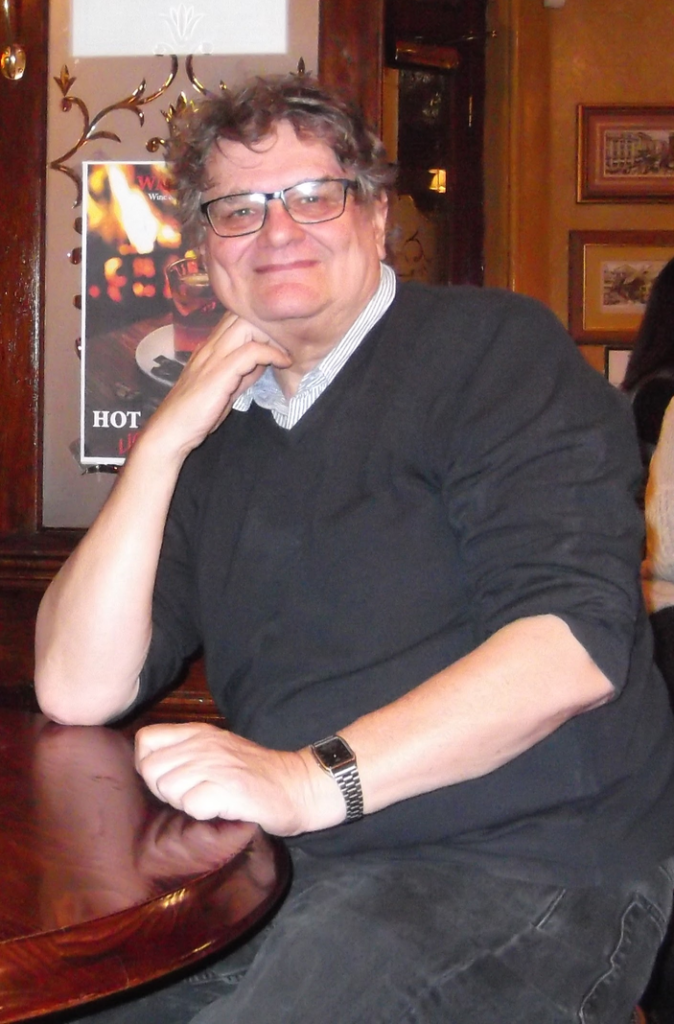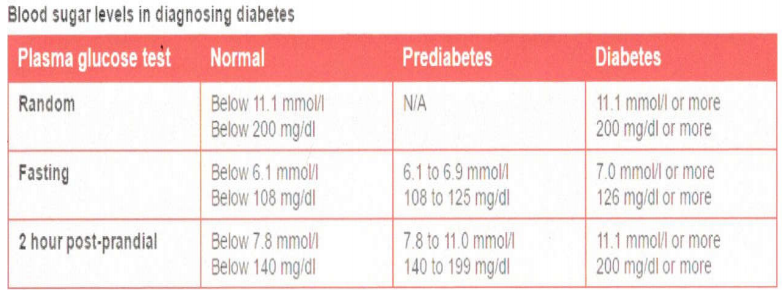Approx 30 years ago, my husband found me slumped on the sofa at home. I don’t actually recall the events, but my husband tells me he carried me to the car and took me to A and E. My first recollection of this life changing day, was opening my eyes, wondering where on earth I was, and seeing which I now know to be, IV’s in each arm with bags of fluids being infused into my body. The excessive thirst that I had been suffering from began to ease. I could literally see the fluids draining away as my body was pulling in sodium, glucose, potassium and insulin on a sliding scale machine.
I was in intensive care, and felt half dead. I was informed that I had DKA (Diabetic keto acidosis), which was a life threatening condition, and that I was a type 1 diabetic who would need daily injections of insulin for life. My pancreas wasn’t producing insulin, thus causing DKA.
Looking back, I was drinking 11-12 litres of water a day and I had dropped 10lb in weight the previous week before falling ill. I felt rather foolish at not recognising my symptoms, as my father was a type 1 diabetic. It didn’t occur to me that I could be a type 1 diabetic. I simply couldn’t and wouldn’t accept that I was a type 1 diabetic and was in complete denial and sought out a way to cure myself.
Injected Insulin, although critical to sustain life in a type 1 diabetic, is a hormone that causes weight gain and due to the steroid built into both animal and synthetic insulin, it is apparent that over time even more weight is progressively gained.
Being a body conscious young lady and also having a needle phobia, I used to skip injections due to weight gain and fear of needles. I quickly learnt and discovered that my body gained 1lb of weight/fluid per 1 unit of insulin injected. My daily 4-5 injections of 5 units daily, equates to 20-25lb weight gain. As soon as I ceased injecting insulin, my weight would drop the 20-25lb of weight gain. However, this not something that practice anymore or that I recommend to others because this will lead to life threatening DKA -Diabetic Keto Acidosis.
Over the following years, I went into DKA 7 more times, my last being in September 2019. Since then I have accepted that I can be thin and dead or fat and alive – I have of course chosen the latter option (!) and I take my 5 daily injections – albeit begrudgingly – and I am really bemused as to why steroids are built into the insulin. This is a question that I want to ask insulin manufactures.
Interestingly, although treatment for type 1 diabetes has been made easier with micro fine needles, continuous glucose monitors and regular health checks, the actual treatment of type 1 diabetes hasn’t change since 101 years ago when insulin injections were first introduced in 1921. Up until then, one was lucky to live until 40. No cure as of yet has been discovered. There are (or were) relatively few type 1 diabetics as oppose to type 2 diabetics. What I would give to swop my type 1 diabetes to type 2 diabetes. Type 2 diabetes can be well managed with a healthy lifestyle. In my opinion, pharmaceutical companies are more interested in making exorbitant amounts of money and profits from the millions of type 2 diabetics. Why would they want to “cure” anyone and reduce the massive profits they make. Excuse my cynicism.
So I set about “curing” my type 1 diabetes. I travelled to the States to visit 3 different and expensive health clinics on 15 different occasions, all of which helped somewhat, but didn’t cure my diabetes or heal my pancreas. I spent a huge amount of money and finally acknowledged there is no cure for type 1 diabetes. I learnt that type 1 diabetes appears to be an auto immune disease, whereby ones body attacks itself and in my case my body is attacking the insulin producing cells within the pancreas. Genetics play a role as well.
I did learn that one’s diet is very important to aide one’s health. Regardless of what disease one has, avoiding processed food is the key to feeling healthier. I remind myself often that “what I eat today will determine how I will feel tomorrow”, but the easiest rule of thumb when shopping or feeling hungry, is don’t buy or eat anything that is processed. It makes decision making so simple and narrows the window of bad food choices.
Part of my journey has included fasting, high carb diets, low fat diets, calorie counting, over exercising, high protein diets and following a vegan diet and a raw food diet. Believe me, I have tried everything, including vast amounts of supplements, extreme detoxing and mind over matter!
My personal conclusion is that a very low carbohydrate diet with plenty of unprocessed protein and lots of salad vegetables with nuts and seeds and olives (natural unprocessed healthy fats in their natural form, as nature intended) keeps sugar levels steady and satiates the appetite. This in turn reduces the amount of insulin and medications required, which also in turn reduces the side effects caused by such medicines. However, type 1 diabetes will always require the need for daily injections. My dream is to one day be free of type 1 diabetes, but I suspect that will not happen in my lifetime.
I also blamed myself for becoming a type 1 diabetic in the first place, as I did used to have a sweet tooth in my younger years. However, I have forgiven myself for being ignorant in my youth, and I have wondered if the utter exhaustion that comes with diabetes, caused me to reach for sweet foods to give me short term energy just to get through the day.
I do believe that many diabetics are food addicts Much of this is due to the food manufacturers who spend millions on researching and producing the perfect chemical cosh of sugar, fat and salt, to produce the bliss factor that can induce addiction to particular foods – to literally make us crave their brands of “food”. It is a scandal and leaves many of us with “brain fog” when high on ultra processed foods.
Meanwhile, there are a few clinical trials taking place in the USA working towards curing type 1 diabetes including islets of langerhang transplants, TB vaccinations (from a 100 year old vaccine, not the newer synthetic vaccines) and a pancreas transplant. There are others going on as well, so I eagerly read up on the research.
Meanwhile, the most simple and inexpensive way to help millions of diabetics (actually, to help all), is to educate the world and people to go back to eating simple unprocessed foods as we used to.
Might I also point out that I worked in a health store for a few months, and please don’t be fooled by “health” foods. They also are generally over processed and cost even more than standard processed food. I have also spent thousands on expensive supplements being shipped to me from across the globe – they don’t replace a healthy unprocessed prepared meal, enjoyed when eaten slowly and consciously.
Gluten gives me itching skin and aching muscles , aside from elevated sugar levels and bloating.
Our bodies recognise natural foods, but become inefficient with processed foods, including processed and hydrogenated oils, and will often store these toxins in our bodies. An excess of omega 6 found in processed vegetable oils and ultra processed foods causes inflammation which in turn causes pain, illness and disease.
So I have learnt to be kind to myself, to not be judgmental of others, to love our families, friends and fellow beings and to ditch the disease causing ultra processed foods.
Lets eat “slow” food as oppose “fast” food – you really will enjoy better health.
Alicia





